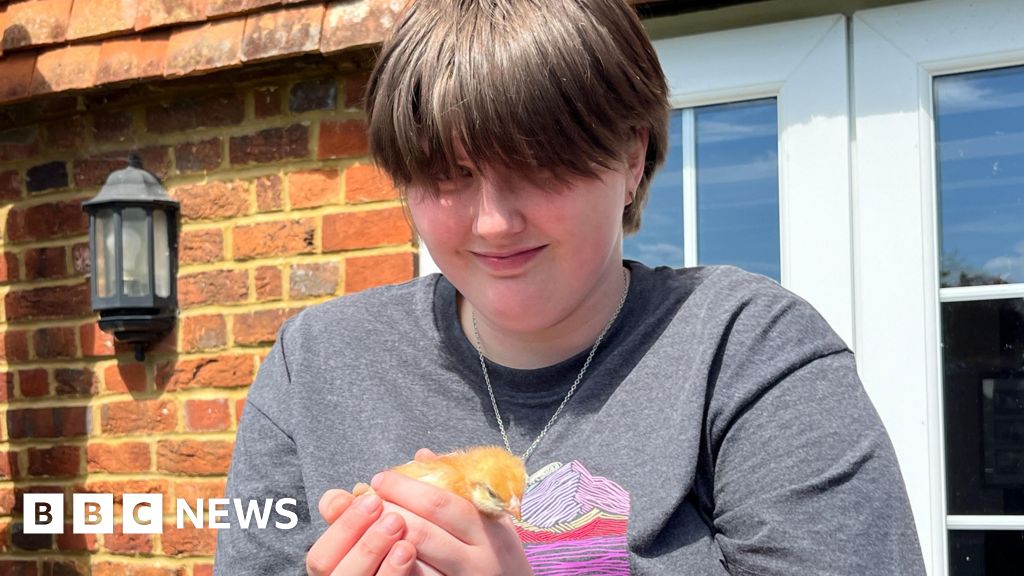ARTICLE AD BOX
By James Gallagher
Health and science correspondent
Image source, Getty Images
The legal restrictions that ruled our lives for two long years are gone in England and on their way out across the UK. We've moved from being "under the thumb" of Covid to "living with" the virus.
However, the pandemic is far from over - Covid is here for the long term and some scientists think we are relaxing too early.
So what do we need to keep an eye out for in the months and years ahead?
New variants
Image source, Getty Images
What's the issue? We've already had the original virus, then the Alpha, Delta and Omicron variants causing significant waves of Covid in the UK. It is simply inevitable that the virus will continue to mutate and create new variants in the future.
Why is it important? New variants aren't necessarily a problem and we shouldn't panic at every new mutation. It is important to remember we have a significant wall of immunity that should continue to provide protection even against new variants. The vaccines that were developed against the first form of the virus are still saving lives from the latest variant, Omicron. However, it is possible that new variants could significantly change the behaviour of the virus to make it more deadly, spread far more quickly or bypass the protection from either vaccination or previous infection. All of these could make Covid an even greater threat than it is today.
What can we do about it? There are two approaches: minimise mutations or react when a new variant emerges. There is a risk of mutations every time the virus makes copies of itself so the only way to reduce the risk of variants is to minimise infections at a global level. Instead, the emphasis seems to be on monitoring new variants and reacting accordingly, such as updating vaccines.
Waning immunity
Image source, Getty Images
What's the issue? It has become abundantly clear that immunity wanes over time. People are catching Covid even if they have been triple-jabbed or have caught Covid before. The protection against catching the virus wanes quite quickly, but protection against getting seriously ill or dying is lasting much longer.
Why is it important? Immunity is the only reason we have been able to relax restrictions. Two years ago our bodies were fighting the virus blind, but now our immune systems have been trained. This level of immunity is the main reason the infection is now less deadly. However, significant waning of immunity could lead to new waves of Covid and even renewed pressure on hospitals. It is possible we will have a "honeymoon period" where it looks like Covid is in total retreat, only for it to bounce back once enough immunity wanes.
What can we do about it? The amount of protection we have against the virus will need to be constantly monitored. Immediately, this will dictate who gets further vaccine doses and how often. There are already plans to give another booster this spring to the over-75s and people at high risk from the virus. There will be a wider booster campaign in anticipation of next winter, too. In the longer term there is already work under way on a next generation of Covid vaccine to see whether it can provide longer-term protection.
Antiviral drug resistance
Image source, Getty Images
What's the issue? Drugs that kill the virus are now being used to keep people out of hospital, but there is a danger that if we use them badly, the virus will evolve to render the drugs ineffective.
Why is it important? Some scientists think this is the single most important issue in the months ahead. We are familiar with hard-to-treat superbugs, from MRSA to super-gonorrhoea, which were created by misusing antibiotics. The same process can happen with antivirals. These drugs, such as Paxlovid and molnupiravir, are currently playing a vital role in saving lives and are one reason restrictions are being eased. Even more importantly, they are the safety net in the future. If a new variant emerges that significantly bypasses our immunity, we will be dependent on antivirals to buy us time until an updated vaccine can be developed and rolled out.
What can we do about it? The more you use antivirals the greater the risk of resistance, which means they will need to be used carefully in the people with the most to gain from them. This could lead to difficult decisions around treating a patient today and preserving them for the patients of the future. One solution is using several antivirals in combination, which greatly reduces the risk of the virus becoming resistant.
How close to normal will our lives get?
Image source, Getty Images
What's the issue? Life is still far from normal and nobody knows for sure how we are all going to react to the changes in restrictions and testing. This creates huge uncertainty in the weeks and months to come.
Why is it important? It is obvious, but Covid is spread from one person to another - the more we congregate together, the greater the opportunities for the virus. So what happens now? Will we all return to our workplace or is home-working the norm now? Will we buy tests when they used to be free? If we get ill, will we isolate or crack on as soon as we feel okay even if we may still be contagious? What will vulnerable people who used to shield do now? How long will people keep on wearing face masks in crowded places? The impact of our shifting behaviour is likely to be greater than any seasonal impact on the virus. The uncertainty means we could continue to have declining infections and people in hospital or it could swing into reverse. However, high levels of immunity mean overwhelming pressure on the NHS is highly unlikely.
What can we do about it? Very little. The decisions have now been made. Legal rules have been replaced with advice on what to do in the future. England's chief medical officer, Prof Sir Chris Whitty, says people should continue isolating if they test positive, even though there is no legal requirement to do so.
Long Covid
Image source, Getty Images
What's the issue? Not everyone rapidly recovers from an infection and some develop "long Covid". Further infections could increase the numbers with long Covid.
Why is it important? Long Covid can be utterly debilitating. Persistent fatigue is common in long Covid, along with brain fog, shortness of breath and muscle pain. More than one in 50 people in the UK say they have long Covid and more than half a million have symptoms that have already lasted more than a year. It is not clear what will happen in the future - is long Covid just a feature of this virus and will always happen, or will it fade away as our immunity improves? Studies have suggested vaccination reduces the risk of long Covid, but does not eliminate it.
What can we do about it? The number of cases of long Covid will need to be monitored. Understanding why the virus causes long Covid and what the best treatments are could speed up people's recovery.

 3 years ago
49
3 years ago
49








 English (US) ·
English (US) ·